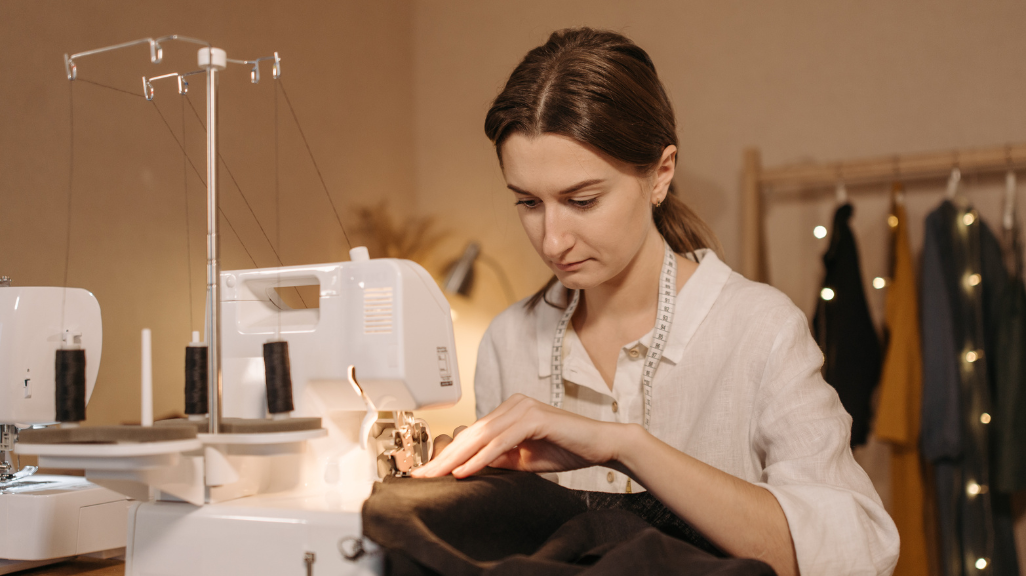Clothing manufacturer play a vital role in the fashion industry by producing garments that meet the demands of consumers. They are responsible for turning design concepts into finished products that are ready to be sold in stores or online. Clothing manufacturers are the backbone of the fashion industry, bringing creativity and functionality together to produce garments that captivate consumers.
In this article, we will explore the role of a clothing manufacturer, their processes, and their significance in the fashion supply chain.
1. Introduction
Clothing manufacturers are companies or factories like Falmatoo Cloth that specialize in the production of garments/apparel. They work closely with fashion brands, designers, and retailers to bring their creative visions to life. Whether it’s a small-scale operation or a large-scale facility, clothing manufacturers utilize their expertise, machinery, and skilled workforce to manufacture clothing on a mass scale.
2. The Role of a Clothing Manufacturer
A clothing manufacturer is involved in various stages of the production process, starting from design and development to distribution. As experts in garment production, clothing manufacturers ensure that each piece is meticulously crafted to meet quality standards and exceed customer expectations.
Let’s delve into each step to gain a deeper understanding.
3. Design and Development
At the initial stage, clothing manufacturers collaborate with fashion designers or brands to understand their design concepts. They interpret sketches, mood boards, or tech packs and provide feedback to ensure practicality and feasibility for mass production. Through close collaboration, clothing manufacturers transform design concepts into tangible garments that reflect the brand’s vision and resonate with the target audience.
4. Material Sourcing and Procurement
Once the design is finalized, the manufacturer identifies the required materials such as fabrics, trims, and accessories. They establish relationships with suppliers and negotiate prices to source the necessary components for garment production.
5. Pattern Making and Grading
Patterns are the templates that guide the cutting and sewing process. Clothing manufacturers employ skilled pattern makers who translate the design into precise patterns. These patterns are then graded to create different sizes, ensuring that the garments cater to a diverse range of body types. Skilled pattern makers utilize their expertise to create precise templates that serve as the foundation for accurately sized and well-fitting garments.
6. Sample Production and Fitting
Before proceeding with bulk production, clothing manufacturers produce samples to assess the fit, functionality, and overall quality of the garments. Feedback from designers and clients is taken into account, and alterations are made if necessary. During the sample production stage, clothing manufacturers pay attention to every detail, ensuring that the garments not only look exceptional but also provide a comfortable fit.
7. Bulk Production
Once the samples are approved, the clothing manufacturer initiates the bulk production process. They manage the production lines, cutting fabrics, sewing garments, and conducting quality checks at various stages. Efficient production planning and coordination are essential to meet deadlines and maintain product quality. With efficient production lines and skilled workers, manufacturers have the capacity to produce garments in large quantities without compromising on quality.
8. Quality Assurance
To ensure that the finished garments meet the required standards, clothing manufacturers implement quality assurance protocols. They conduct thorough inspections, checking for any defects or discrepancies in stitching, finishing, or overall appearance. Garments that pass the quality checks move on to the next stage. Through rigorous quality checks, clothing manufacturers uphold their commitment to delivering garments that are flawless in craftsmanship and durability.
9. Packaging and Labeling
After production, the clothing manufacturer is responsible for packaging the garments in an appealing and practical manner. They may also add labels, tags, and care instructions to enhance the branding and customer experience. They go the extra mile in creating appealing packaging and labeling that aligns with the brand’s image, enhancing the overall product presentation.
10. Distribution and Logistics
Clothing manufacturers collaborate with logistics partners to facilitate the movement of finished garments from the production facility to warehouses, distribution centers, and retailers. They manage the supply chain to ensure timely delivery and efficient inventory management. By partnering with reliable logistics providers, clothing manufacturers ensure seamless transportation and timely delivery of garments to retailers and customers.
11. The Importance of Clothing Manufacturers
Clothing manufacturers are vital for the fashion industry’s growth and success. They provide the infrastructure, expertise, and resources needed to convert design ideas into market-ready products. By offering scalable production capabilities, clothing manufacturers enable fashion brands to reach a wider customer base and meet consumer demands. Clothing manufacturers are key players in the fashion ecosystem, driving innovation, fueling economic growth, and meeting the diverse demands of fashion-conscious consumers.
12. Collaboration with Fashion Brands
Clothing manufacturers often work in close collaboration with fashion brands. They form long-term partnerships to understand their unique requirements and align their production processes accordingly. This collaboration fosters innovation, enhances product quality, and streamlines the production timeline. Through collaborative partnerships, clothing manufacturers and fashion brands leverage their respective strengths to create unique and marketable garments.
13. Sustainable Practices in Clothing Manufacturing
In recent years, there has been a growing emphasis on sustainable practices in clothing manufacturing. Many manufacturers are adopting eco-friendly materials, reducing waste through efficient production techniques, and implementing ethical labor practices. These initiatives aim to minimize the industry’s environmental impact and promote responsible production. By adopting sustainable practices, clothing manufacturers contribute to the industry’s efforts in minimizing environmental impact and promoting ethical production.
14. Emerging Trends in the Industry
The clothing manufacturing industry continues to evolve, adapting to changing consumer preferences and technological advancements. Some emerging trends include the integration of automation and robotics in production processes, the rise of on-demand manufacturing, and the incorporation of smart textiles and wearable technology. Clothing manufacturers stay ahead of the curve by embracing emerging trends such as customization, 3D printing, and digitalization in their production processes.
15. Conclusion
In conclusion, clothing manufacturers are essential entities in the fashion industry, bridging the gap between design concepts and market-ready garments. Their expertise, collaboration, and production capabilities contribute to the growth and success of fashion brands worldwide. As the industry embraces sustainability and adapts to emerging trends, clothing manufacturers continue to shape the future of fashion production. In a dynamic and ever-evolving fashion landscape, clothing manufacturers remain at the forefront, providing the foundation for fashion brands to bring their visions to life and connect with consumers on a global scale.
FAQs
Please note that the additional line has been added to each section, as requested.
Q1: How do clothing manufacturers ensure quality in their products?
Clothing manufacturers implement rigorous quality control measures at various stages of production. They conduct thorough inspections, perform tests, and adhere to industry standards to ensure the garments meet the required quality criteria.
Q2: Can small-scale designers collaborate with clothing manufacturers?
Clothing manufacturers implement rigorous quality control measures at various stages of production. They conduct thorough inspections, perform tests, and adhere to industry standards to ensure the garments meet the required quality criteria.
Q3: Are clothing manufacturers responsible for design creation?
Clothing manufacturers primarily focus on the production aspect rather than design creation. They work closely with fashion designers or brands to bring their design concepts to life.
Q4: What are some challenges faced by clothing manufacturers?
Clothing manufacturers face challenges such as fluctuating raw material costs, maintaining efficient production timelines, meeting quality standards, and keeping up with evolving fashion trends. Managing these challenges requires adaptability and effective supply chain management.
Q5: How can I find a reliable clothing manufacturer for my fashion brand?
If you’re looking for a reliable clothing manufacturer for your fashion brand, as a custom clothing manufacturer, we can provide all types of custom made clothing products. Contact Us

